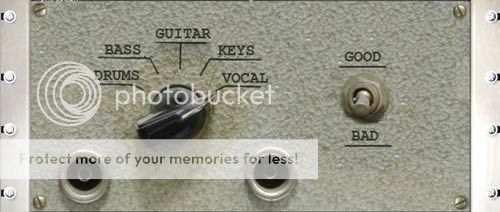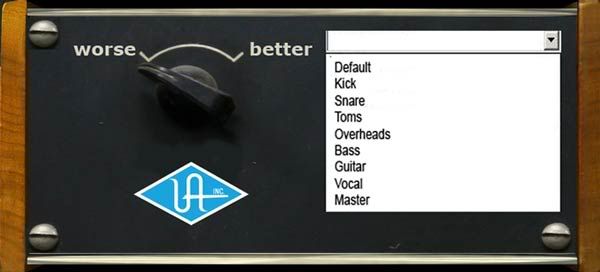Let me start with saying that practice is the only way you're ever going to get really good sounding vocals. I know it's been said, but I want to emphasize it because you shouldn't get good at polishing the turd and become content with that.
You certainly can polish a turd.
But a shiny turd ain't never gonna be a diamond.
So,
the type of turd polishing you do is gonna depend entirely on what your turd smells like (alright, I'm dropping the analogy).
Firstly, are your vocals pitchy? Do you have trouble keeping your notes sweetly in key?
Depending on how bad the problem is, pitch correction can help.
Now, I'm not talking about autotuning. That's a specific effect that some people (for some unknown reason) find appealing. In fact, the sound of Autotuned vocals is the artifacts of pitch correction that you're gonna wanna avoid.
Reaper has a pretty effective little pitch correction VST included in it's set of free plugins. It's called Reatune. Insert that as your first effect in your vocal chain. When it's graphical user interface window pops up, select the tab on the GUI labeled "correction." There's a check box immediately below the "correction" tab labeled "automatic pitch correction." Check that box.
Now just select the key you're singing in and voila. This can work very transparently and very well on vocals that are only slightly pitchy, though the further out of tune your vocals are, the more unnatural the pitch correction will begin to sound.
Alright, how about the timber of your voice? Are you dissatisfied with the way your voice actually sounds?
EQ can help to some degree here. Try and identify what characteristics you find unappealing. Is it overly nasal or honking? Is it too sibilant ("s" sounds come across too loudly) or downright edgy and painful? Does it have too much body, so much that it's boomy and muddy in the mix? All of these things can begin to be alleviated with good equalization.
Check this out:
http://www.recordingeq.com/Subscribe/tip/tascam.htm
Alright. First thing, absolutely ignore the way this thing is worded. Do not simply set a parametric eq at 200 hz and "increase to add fullness to vocals."
It ain't gonna work like that and can be misleading as every performance is different. Secondly, don't look at the numbered frequencies as the places where the listed characteristics absolutely live. They're more like starting points. That is, the body/fullness (/muddiness/boominess, if there's already too much energy there) on a given recording can generally be found in the range of 200 hz, but on any particular recording, it's likely not going to be exactly 200 hz which needs a cut or boost.
So, look at the numbers on that chart and the recommended actions as a global level map of where to start looking for your particular problem frequencies. Try and identify what bothers you about the sound of your voice and then identify the general range from which to start trying to make slight boosts or cuts. You're gonna have to use your ears here, and it's gonna take a lot of practice to get even halfway effective with an equalizer.
One common issue with vocals is overly prominent sibilance. While you can use an equalizer to cut these out, you can end up throwing out a lot of the presence and shine of the entire vocal take by doing so. If sibilance is a big problem for you, you might try using a de-esser instead of eq. This:
http://www.digitalfishphones.com/main.php?item=2&subItem=5
spitfish specifically, is a pretty darned effective free one.
A final note about the sound of your vocals.
While some problems can be reduced with eq and other effects after the fact, many (sibilance, boominess and loud "pop" sounds on syllables like "p" and "b") can be more effectively circumvented by not recording them in the first place. This will come down to proper mic placement and mic technique. Google "vocal mic placement" and "vocal mic technique" to start getting ideas for what you might need to work on in these areas.
OK, final thing you might be having problems with is the feel of your vocals.
One thing I see pretty often when recording amateur vocalists is a total lack of energy.
We've got the music cued up, we've set our levels, everything's ready to go, and I press the little red button. And the singer stands there, headphones on, looking like they're either waiting for the bus or the firing squad (that is, bored or scared).
I got a great piece of advice early on in my attempts to sing and that was "look at Michael Stipe." That guy dances around like a spastic epileptic when he's singing and often look ridiculous.
But who cares? He sounds pretty damn good.
All of the energy in your vocal performance is gonna come from the energy you put into it. If you stand there like a mannequin and just deliver your lines when the time comes, it doesn't matter if your timing and intonation are perfect, it's gonna sound dull and lifeless.
Match your energy to the song. If you're singing a whisper quiet dirge about the death of your grandma, it's gonna be pretty inappropriate to be dancing around like an idiot.
But if you're singing a hard driving rock song about dancing around like an idiot, it's gonna be just as inappropriate for you to stand there like you're at grandma's funeral.
You're recording yourself. No one's watching you and you don't have any reason to be embarrassed. So go ahead and express yourself with your whole body. I promise it will come across in the recorded vocal.
And sure, you might ruin a take by getting too far from or close to the mic or just knocking the damn thing over, but I promise you the keeper take you ultimately get is gonna sound ten times more alive than the one you would've gotten if you'd stood perfectly still trying to maintain the exact same distance from the mic at all times.
Alright, that's all I've got. Oh, and practice. A lot.

 It would be much easier to take some vocal lessons and better yourself in the singing department. Most people I've talked to who record professionally say that if it sounds bad at the source, then its gonna sound bad in the mix. Unless you're into the whole auto-tune thing...
It would be much easier to take some vocal lessons and better yourself in the singing department. Most people I've talked to who record professionally say that if it sounds bad at the source, then its gonna sound bad in the mix. Unless you're into the whole auto-tune thing...


